- Home
- Lorenzo Carcaterra
Paradise City Page 2
Paradise City Read online
Page 2
“We got two down and one in cuffs, Inspector,” the youngest of the two officers shouted out to Lo Manto.
“Wounded or dead?” Lo Manto asked without turning his head, eyes on the skinny man.
“One’s alive,” the officer said. “At least for the moment.”
“Call for an ambulance and the morgue truck,” Lo Manto said. “Then take your prisoner in to be booked. I’m going to spend a few more minutes with my friend.”
Lo Manto looked past the skinny man and down into the tight backyard three floors down. “It’s a broken leg at the very least,” he said. “But that’s if you fall right. You get yourself hung up on one of those lines or brush against those trees, who knows what can happen?”
The skinny man turned to look down and then back at Lo Manto. “Help me up,” he said.
Lo Manto put his gun back against his spine and rested his arms on top of the iron railing. “I was only kidding before,” he said to the skinny man. “I really did like that coffee you made. I’m going to get myself a second cup. While I’m gone, try to remember that name and place I was asking about.”
“Help me up first,” the skinny man said, his fingers starting to tremble from the grip he held on the curved bars.
In the kitchen, Lo Manto found a clean cup and poured himself some coffee, the smoke from the grenades washing past him like clouds. He looked toward the skinny man and smiled. “Are you sure you don’t have any sugar?” he asked.
2
LO MANTO WALKED alongside his mother, her arm resting on the fold of his elbow, down the path of her lush backyard garden. On all sides of them, plants and bushes were in full summer bloom. The orange and lemon trees she had planted twenty-three years ago, soon after their move from New York City to the two-story stone house off Via Toledo, were now in the early stages of adulthood. His mother, Angela, fretted over her garden, worked and toiled over it much like a dedicated nurse hovered over a sick patient. He knew it was her way of letting the past rest, allowing her to put distance between her life in Naples and the turbulent one she had endured in America. In all the years since, in their many walks and talks together, neither one had ever made mention of their time in New York. It was as if those years were as deeply buried as the roots of the trees lining the garden walk.
Angela Lo Manto had buried her husband in Woodlawn Cemetery on a rainy Tuesday morning. By that Friday, she had sold what few belongings she had, closed her bank account, and booked three coach tickets to Rome for herself, her son, Giancarlo, and her daughter, Victoria. They traveled by train to Naples and spent their first three months in the city living with her mother’s uncle Mario, a tram conductor and lifelong bachelor. She took a job in a neighborhood bakery, putting her skills to good use and, in ample time and with the help of small loans from several relatives, scraped together the down payment for the house off Via Toledo.
Lo Manto and his sister, then seventeen, had a difficult period of adjustment, which their mother would brush away with the wave of a hand and a shrug of her shoulders. “These things take time,” she would tell them. “And when you’re young, time is something you have in abundance.”
Lo Manto missed his friends in the Bronx. He longed for Yankees baseball in the summer, Knicks basketball in the fall, and Giants football when the cold winds of winter were strong enough to push a man down a side street. He found it hard to turn his back on the only life he had known. Most of all, he thought it would be all but impossible to avenge the death of his father living in a city so far removed from where the crime had occurred.
In time, Lo Manto grew accustomed to his surroundings. He excelled at school, helped by the fact that he already spoke Italian. The slower pace of Neapolitan public education also proved less demanding than the daily curriculum of the Marist Brothers of the Bronx. He learned to appreciate the ins and outs of a heated soccer match, visualizing it as a speeded-up version of a baseball game, with all the intricate plays and moves that both sports demanded. He found a core group of solid friends whose company he enjoyed and whom he valued as much as those he had left behind. He loved the food and the temperament of the people of Naples. He loved to listen to the sounds of the women singing old ballads as they hung fresh wash out to dry, and the heated political arguments of the men standing in front of cafés at the end of another long workday. The people were loud, funny, stubborn, and kind as they forged a life on the streets of the toughest and poorest city in Italy.
Lo Manto was one week shy of his sixteenth birthday when he first discovered that the power of the Camorra resided in Naples as much as it did in New York. He was walking home from school, enjoying the gentle late fall breeze coming off the bay, when he heard a window shatter. He looked across the cobblestone street and saw three men in dark suits circle the owner of the produce shop, two with hands in their pants pockets, one holding open a notebook. They pinned the owner, a small, rumpled man in a wool work shirt and cuffed dark jeans, against the edge of a wooden stall, its rows filled with eggplants, artichokes, tomatoes, and escarole. The man with the notebook spoke in a low voice, his lips pressed to the shop owner’s right ear, each word measured and deliberate, each vowel tinged with venom and threat.
Lo Manto stood in the entryway of a nineteenth-century three-story walk-up, its foyer steps done in marble, its wooden door polished enough to see a reflection, and he watched the scene play out—one he had witnessed many times in the Bronx neighborhood where he was raised. Now he knew the evil he thought had been left behind not only lived on the streets of his new city, it thrived. He studied the moves of the three men, so familiar to him by now—gestures and head tilts and smiles all meant to inspire fear—and decided that if he was to make the Camorra his own personal enemy, he needed to know everything he could about them. He needed to absorb himself in their history, embrace their tactics until he knew them well enough to be unleashed as a lethal weapon against their own members.
He would turn the predator into the prey.
“I left the water on for pasta,” his mother said to him. “I made a fish sauce earlier this morning, spicy the way you like it and the way the doctor says I can’t have it. This way we’ll both be happy.”
“Do you ever miss it?” he asked her, his back to her, plucking out two fresh tomatoes from her row of vines. “Life back in America, I mean.”
“I remember it,” she said, uncomfortable with the topic. “And will never forget it. That doesn’t mean I miss it. It was just a part of my life.”
“A lot has changed,” he said, turning to face her. “The city you left behind is not the city you would find.”
“The faces are different, but their hands still control the lives of others,” his mother said. “That will never change. You saw it as a child and you’ve seen it as a detective. The power will always belong to the ones who live in the dark. In that country and in this city.”
“You sound like my boss,” Lo Manto said, offering her a quick smile. “He told me he’s been fighting the Camorra in Naples for thirty years. Arrested hundreds of them, shot and killed dozens more. And now, they’re twice as strong as they were when he first put on a badge.”
“Pietro is a very lucky man,” Angela said. “He made it to an old age. I pray every day you do, too. This fight against the Camorra is not made for you to win, no matter how hard your battle.”
“I don’t expect to beat them all, Mama,” Lo Manto said, handing his mother the fresh tomatoes. “Just one family is all I want.”
Angela held the tomatoes against her chest, lowered her head, and led the way out of the garden and into her kitchen. “It’s time to sit and eat,” she said. “Forget about the Camorra. At least for one meal.”
3
LO MANTO SAT on the stone steps leading to the vast church of San Paolo Maggiore, opening his fourth pack of chewing gum of the day, waiting for an informant who was fifteen minutes late. He watched the sun fade in the distance, freeing the early evening winds to come down off the bay and refres
h the humid city. He loved Naples at this time of day, the locals emerging from all quarters, free of work and eager for their nightly stroll. The men were dressed in starched shirts, creased trousers, and shiny loafers, jackets hanging loose off their shoulders. The women wore fine cotton dresses and low-heeled pumps, their hair flowing past their faces, bags hanging off their shoulders, their children eagerly keeping pace with their steps. In those minutes before dusk, the city turned into an open-air market for conversation and gossip, brimming with life. It was part of what made Naples such a special place to call home. And it was only then, as he looked out at the faces that walked past him, at the sights and sounds that so easily turned it into a magical city, that Lo Manto was able to forget the demons at the controls.
“What is it with you and churches?” the voice behind him asked. “You thinking of saving souls instead of arresting criminals?”
“Not even St. Peter has enough clout to save your soul,” Lo Manto said.
He watched as the man moved down a step to sit next to him, a cigarette hanging from his mouth, his brown cotton jacket so dirty it shined. He was in his late twenties, thin, with a scraggly three-day growth, and long brown hair bunched together at his neck with bobby pins. He had teeth the color of yellow chalk, hazel eyes with lids that fluttered, and a half-moon scar over the top half of his right cheek. He was a habitual heroin user and had been one of Lo Manto’s street sources for three years. His information was reliable and despite his status as a junkie, he seemed to be trusted by the lower-level Camorristas who sold him drugs. Lo Manto had made dozens of attempts to get his informant into one of the city’s rehab centers and off the street life. Each time he met with failure, wasting effort and losing out on valuable information that might lead to yet another arrest.
“Did Alberto tell you what you wanted to know?” the informant asked.
“That’s between me and Alberto,” Lo Manto said, his coal-colored eyes still gazing out at the passing street traffic, the informant inching closer, his body an oil spill of drug sweat and body odor.
“They give you any trouble?” the informant asked. “Or was it a clean bust? Arrests don’t upset the bosses as much as shootings do. They figure they can always get their men out of jail. All you can do at a wake is send flowers.”
“Buy a paper, Pepe,” Lo Manto said. “That’s where I look when I want news. But when I want information, I turn to you. So, tell me what you came here to tell me.”
“How do you know I have anything?” Pepe asked.
Lo Manto turned and looked at the weary young man flashing him a wide grin, cigarette clenched between his teeth, two of which looked to be sharp enough to draw blood. “I’d bet your life on it,” he said.
Pepe lost the smile and the cigarette, crushing what little was left of the hand-rolled tobacco with the heel of a worn boot. “City’s running dry, every skinner I know is waiting for a dealer to fill his bag. It hasn’t been this tough to score since the pope came to visit, and that lasted only a few days.”
“What’s being done about it?” Lo Manto asked.
“There’s something big on the way,” Pepe said. “My dealer told me to make do until the middle of the week. By then, he’d have enough smack to keep me going for a full month. And prime grade, he said, not the kind that’s sliced thinner than skin.”
“Any word on where or when?”
“Don’t know the time but I know the place,” Pepe said, lighting a fresh Lord cigarette, hands shaky, long fingernails lined with a coat of dirt and dried blood.
“You going to tell me,” Lo Manto said, “or are you going up to the church and confess it all to a priest?”
“This isn’t just giving you a tip on a name,” Pepe said. “This gets back and they hear I talked, then I’m floating in the bay without a head.”
“If you’re so worried about dying, you wouldn’t be a heroin addict,” Lo Manto said. “A bad batch will kill you long before the Camorra.”
Pepe took a long drag on the cigarette, the smoke filtering through his nostrils and open lips. “Ercolano,” he said. “It’s always filled with tourists, walking in and out of the ruins. Perfect place to leave one package and pick up another.”
Lo Manto stood and glanced down at Pepe. He pulled a fifty-euro bill from his jacket and shoved it into the front pocket of the addict’s soiled shirt. “Since there aren’t any drugs around to buy, get a good meal instead,” he told him. “Maybe a shave and a haircut, if there’s anything left over. And stay out of sight until this is cleaned up.”
“With the Camorra, there’s no such thing as out of sight,” Pepe said to him, shielding his eyes against a disappearing sun. “More than anybody, you should know that.”
Lo Manto stared out at the Bay of Naples. He sat on a rusty iron mooring, his legs dangling over the edge toward the lapping waves, his back to the city he had lived in since he left New York. He had finished high school in Naples and then did his mandatory two years of military service in the Italian navy, spending most of it on a rusty destroyer cruising the African coast. He toyed with the notion of returning to New York and joining the police force there but felt his time abroad would serve more as deterrent than advantage. Those were awkward years as he tried to grasp his bearings, a determined young man without a city to call his own. He was a New Yorker by birth and, based on the comments he heard, in attitude as well. But he was a Neapolitan at heart, finding comfort in the center of a maligned city. In time, he had learned to blend the strengths of the two cities, traveling from one to the other as he hunted down the members of the Rossi crime family, a syndicate entrenched in both places.
Lo Manto had filled out the forms, taken the exam, and gained acceptance to the Naples Police Department before he mentioned his career choice to his mother. As it was, it came as no surprise to her when he finally did break the news. She had long suspected her son of harboring a desire to avenge his father’s death, but chose to bury the matter and not deal with it until it surfaced. “You can arrest every member of the Camorra,” she told him when that day finally arrived. “Both here and in New York. And it won’t bring your father back.”
“This is for me,” Lo Manto said, “not for my father.”
“You can do so much better for yourself,” his mother said. “You can go to the university. Find a line of work you will enjoy, not one that can get you killed. The Camorra are too big for one man to fight, Giancarlo. Even one with as much hate for them as you.”
“You start by stopping one,” Lo Manto said. “That much one man can do.”
“How can you say that and still not believe this isn’t about your father?” she asked.
“It’s not about him,” Lo Manto said. “It’s about the next boy whose father might be killed for no reason other than he stood in their way.”
“I pray for your father’s soul every day,” his mother said, turning her back to Lo Manto. “Now I’ll say a second to help keep his son alive.”
Lo Manto joined the Naples police force one week past his twenty-first birthday and was initially assigned to a street patrol unit designed to keep the main tourist areas free of vagrants, hookers, and pickpockets. It was boring and routine work, but Lo Manto turned the weakness of the beat into a future strength. He seldom arrested any of the street thieves he came across, working instead to build up a valuable network of confidants and informants who would, over time, grow in number and supply him with a steady stream of leads as he moved up the police ranks. He never judged what the hustlers and con men did in order to survive and feed their families, understanding how impossible it was for them to land steady employment in an impoverished city and how easy a lure it would be to grasp for the outstretched hand of the Camorra.
Lo Manto sought help for as much of the street population as he could: reaching out to the mother superior of a nearby convent to get a prostitute’s daughter into a good preschool; finding an apartment for a homeless pickpocket with too many cold children huddled in corners. With
an unemployment rate always hovering near the 20 percent mark and with corruption as much a part of the city’s landscape as its churches, crime was not merely a choice but often the only alternative for thousands of its residents.
Within a few short years, his methods and his solid-as-steel word helped make Lo Manto one of the most trusted cops in Naples, the one the street crowd always turned to for a favor or a break. Lo Manto, meanwhile, utilized their help as he focused his attentions on the higher-ups in the criminal landscape, putting numerous dents in the stranglehold of the Camorra, doing damage to all, including the Rossi crime family, the most powerful of the organization’s many branches. He began small, breaking open a half-dozen illicit gambling operations, often working on his own clock, as he pieced together the street info he was fed on a regular basis and inched his way into the heart of a vast criminal network. It didn’t take Lo Manto long to discover that the Camorra’s reach did not end at the doors of the local precincts. He caught the knowing nods and glances that passed between a suspect he was bringing in for booking and the detectives who mingled in the squad room. Graft was an accepted practice in Naples and the poorly paid and overworked members of the police department were not immune to its immediate and gratifying spoils. “You will find you are your only friend, Lo Manto,” a bought-and-paid-for police inspector once told him. “And that is no way to survive, especially for a cop.”
In addition to a vast amount of skill, Lo Manto also grabbed a handful of luck. His tactics, honesty, and impressive arrest record soon caught the attention of Pietro Bartoni, the commander of the Naples homicide division. The newspapers often referred to Bartoni as the Italian Eliot Ness, a son of a slain cop and a brilliant detective with a clean reputation and a stellar record of arrests and convictions. Bartoni had stood up to the weight of the Camorra for more than two decades and dozens of shoot-outs that left bodies strewn on both sides. When the time came for him to be promoted into a supervisory position, he wanted his replacement to be a detective who would never be satisfied with just one bust, one arrest. He wanted a detective who wanted to bring the Camorra to its knees, weaken it to the point of surrender. And he wanted a cop who was not available at any price.

 Tin Badges
Tin Badges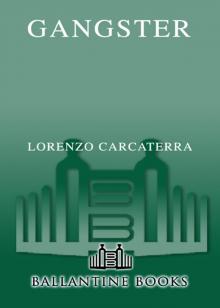 Gangster
Gangster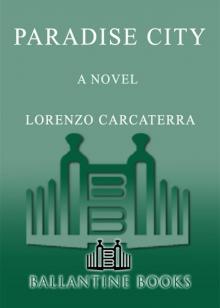 Paradise City
Paradise City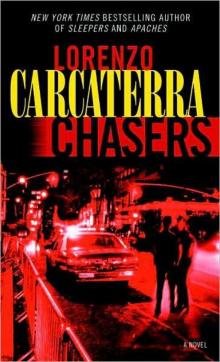 Chasers
Chasers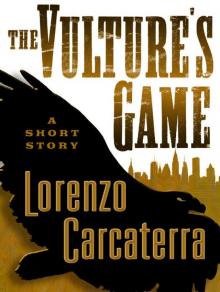 The Vulture's Game
The Vulture's Game Payback
Payback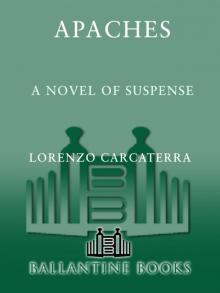 Apaches
Apaches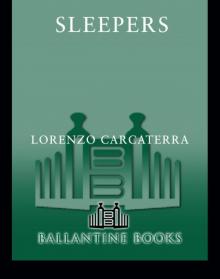 Sleepers
Sleepers The Wolf
The Wolf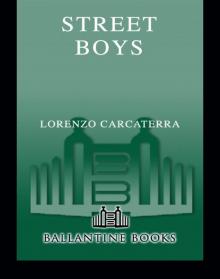 Street Boys
Street Boys The Wolf: A Novel
The Wolf: A Novel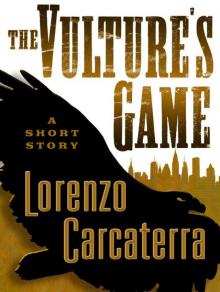 The Vulture's Game (Short Story)
The Vulture's Game (Short Story)